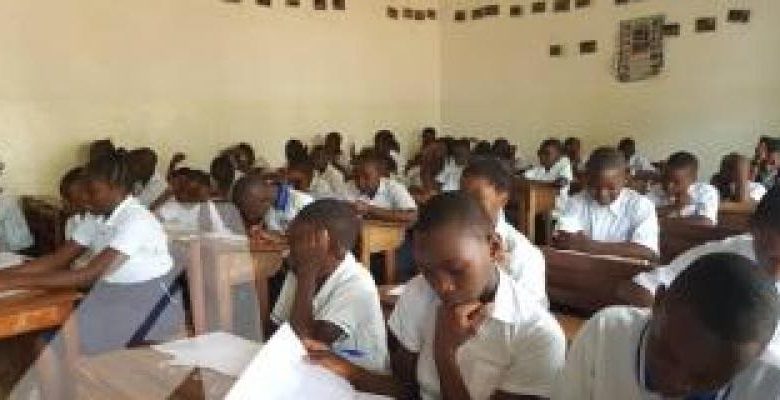Insecurity: Over 1,800 Students To Abandon School In Beni-Butembo, DR Congo
The absence of these students from schools is due to ongoing violence and humanitarian concerns in parts of DR Congo.

Over 1,800 students are reported to have abandoned school in Beni-Butembo, Democratic Republic of Congo due to fighting between armed groups and the national army, FARDC, in that part of the country.
The situation was discovered within the ranks of primary, secondary, and technical education during the 2020-2021 preliminary state examinations which ended last week.
The zones most seriously affected are in North Kivu II, which extends from Kanyabayongo in Lubero to Eringeti in Beni.
According to statistics made available Monday, July 19, 2021, by Bernard Tembo, the Principal Provincial Inspector of Primary, Secondary and Technical Education for North Kivu II, most of the students who abandoned school because of the fighting were from the region of Beni.
“Generally, examinations were conducted without major incidents. However, there were numerous cases where children abandoned school, especially in the territory and town of Beni,” Tembo said.
“There were 219 cases of school abandonment in Beni, 294 in the sub-divisions of Bulongo, 67 in the Kamango sub-division, and 188 in the sub-division of Oicha. I have given just those figures to illustrate the fact that there were cases where children abandoned school.”
“The children abandoned school either because their parents were internally displaced or because there were no longer schools in their places of origin due to the fighting.”
In the educational province of North Kivu II, 26,815 final year students were expected to sit the exams in 70 centres in Beni, Butembo and Lubero.
But on the first day, absences were recorded essentially in the operational centres of Beni affected by killings perpetrated by the rebels of the Allied Democratic Forces (ADF).
“On the first day everything went on well and we had no major incidents. All the centres functioned normally including those in Beni but for the absences in Bulongo, Kamango, Oicha 1, Oicha 2, Oicha 4, Mangina and Madidiwe,” Tembo revealed adding that about 700,000 final year students were expected to sit the 2021 preliminary session of the state exam.
The exams were however postponed to a new date for students affected by the May 22, 2021 Mount Nyiragongo volcanic eruption as well as in the Irumu 3 and Djugu 1 sub divisions affected by serious violence.
Refugee children from DR Congo who had fled to Uganda and who were supposed to sit the exam also could not make it to examination centres in DR Congo because of the difficulty of crossing the border from Uganda due to insecurity and COVID-19 barrier measures put in place.
Support Our Journalism
There are millions of ordinary people affected by conflict in Africa whose stories are missing in the mainstream media. HumAngle is determined to tell those challenging and under-reported stories, hoping that the people impacted by these conflicts will find the safety and security they deserve.
To ensure that we continue to provide public service coverage, we have a small favour to ask you. We want you to be part of our journalistic endeavour by contributing a token to us.
Your donation will further promote a robust, free, and independent media.
Donate HereStay Closer To The Stories That Matter




